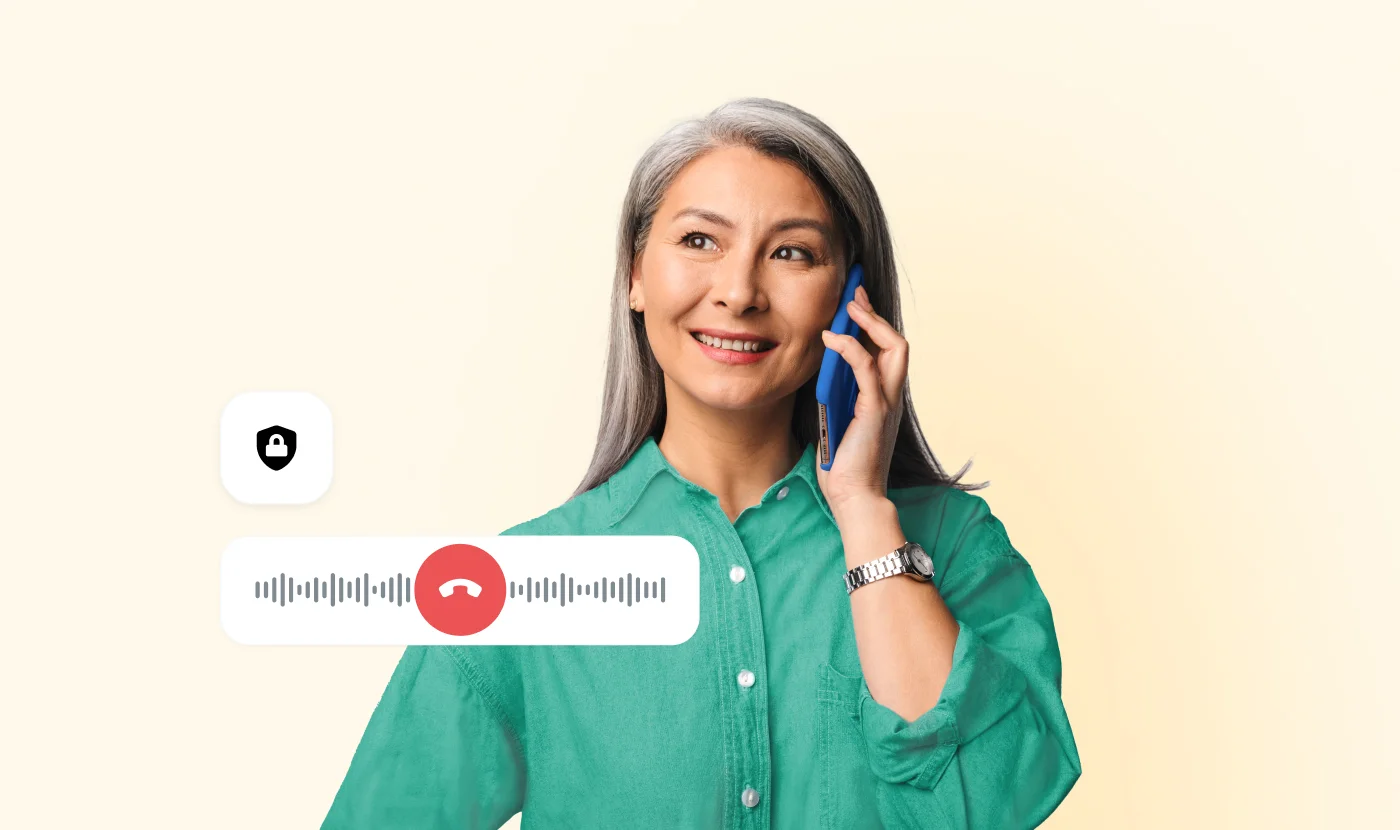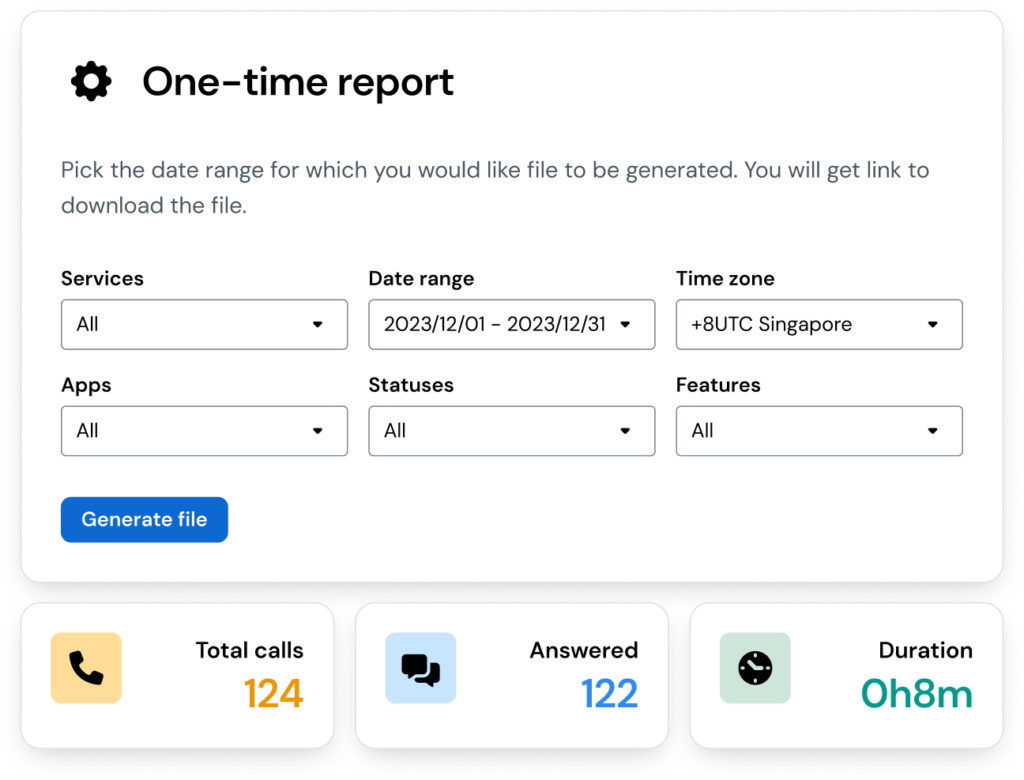Insights
How call masking enhances customer and employee privacy

Insights

Whether your company manages logistics, e-commerce, or ride-sharing – privacy and safety are an important part of the customer and employee experience.
How a company handles private data has become a major factor for consumers for trusting a brand. Privacy matters and companies need to do everything they can to protect their users’ personal information.
That’s why protecting a person’s phone number has turned into a critical part of safeguarding communication. This practice of anonymizing phone numbers, also known as number masking, ensures that phone numbers remain private for employees and customers alike.
How does this work exactly, and how are companies masking calls to protect privacy for all end-users? Let’s dive in!
How does something as simple as number masking work to protect a user’s personal information and limit liability to your company?
Number masking, sometimes referred to as call masking, is a VoIP technology and works by anonymizing the caller ID. The dialer receives a temporary virtual number – behind the scenes – to hide their personal number. All inbound and outbound calls and texts are routed through this number via the provider’s network, ensuring quality and stability while also protecting the individual’s personal information, as no party can see the other’s number.
This is made possible through programmable voice APIs, interfaces using APIs and SDKs allowing companies in any industry to integrate various voice features into their tech stack – including phone number masking and in-app calling.

Number masking is typically used in situations where business employees and customers need to be able to call each other but want to maintain their privacy. It has also become a standard functionality for customer support teams in call centers.
Here are a few common use cases showing number masking in action:
All these scenarios boost the comfort level and confidence of employees and customers, providing additional peace of mind knowing their information is secure. While these are all simple interactions, number masking reduces liability by protecting the personal phone numbers for all parties.
Number masking protects users by anonymizing the caller’s phone number – you protect the personal information of your customers and employees while enhancing communication, quality, and service.
Now that you know what number masking is and have seen some examples of how it’s used, let’s discuss all of the advantages it has – from customer and employee privacy and security to establishing a local presence and having more control over call routing.
Customer safety is the primary reason anonymous calling is ultimately a must-have for enterprises. Keeping customer information protected prevents any possible unwanted contact. You must ensure customers want to continue using your services, or you’ll risk losing them to a more privacy-focused competitor.
We’ve talked about how employees need the same protection as customers. Number masking also shields your employees from unnecessary customer harassment.
Privacy matters to consumers. And the businesses that show customers they care to protect the users’ personal contact information will end up gaining a competitive advantage. Using phone number masking isn’t only a very efficient way to guarantee user data privacy, but also a cost-effective one: It’s an inexpensive and easy add-on that brings an invaluable layer of security.
In the context of ride-sharing or delivery services, allowing drivers to see customer numbers creates the opportunity for drivers to contact them later to offer services apart from your app, undermining your business. You may lose customers and employees if left unchecked. Number masking eliminates the possibility of future phone calls as the driver will never see the customer’s personal number.
The call forwarding process that’s part of call masking also makes it easy to route calls more efficiently. For instance, you can set where specific customer calls get routed to. This gives you more control in managing who calls you on which number.
Virtual masked numbers can also help enterprises build trust beyond protecting their customers’ privacy. By routing your calls through customized local numbers, you can build a regional presence and reduce the number of calls recipients ignore because they don’t come from local numbers and let them go to voicemail instead.
Use customized virtual numbers for voice campaigns on different channels. This makes it easy to track which masked number was used the most and which channel was most successful for your voice campaign.

Privacy and security are top of mind for companies and consumers when it comes to building trusting relationships. But ensuring smooth communication while safeguarding sensitive information can sometimes seem like conflicting goals.
Luckily, the privacy challenge can be easily solved by using a powerful programmable voice solution. With the right technology, you can protect user privacy, improve the customer experience, and prevent revenue leakage – while enabling critical interactions.
Sinch’s Number Masking offers just that. We provide a wide range of carefully-tested phone numbers for quality and scalability that you can also use for SMS. Our voice offering is supported by our owned and operated voice super network – the largest in the U.S. – with a 94% population coverage and direct connections to carriers.
We also maintain a global presence, with numbers in over 70 countries and more than 16,000 cities around the world. Sinch’s Number Masking feature is part of our programmable voice API, which includes a range of other capabilities like text-to-speech, interactive voice response (IVR), voicemail detection, and more.
Just integrate the voice API with your existing system (delivery application, patient portal…) and start renting virtual numbers from Sinch’s extensive pool of over 160 million active phone numbers. Your calls and messages get routed through our programmable voice platform, protecting your customers and employees.
Are you ready to take the next step to protect the privacy of your customers and employees? Contact one of our experts today and see how other enterprises are using programmable voice and number masking to protect user privacy.